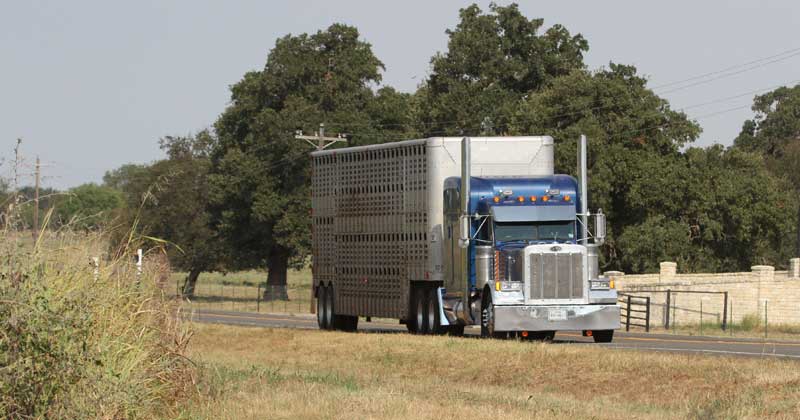The American Farm Bureau Federation (AFBF) and seven livestock organizations have requested a waiver and exemption from the fast approaching Electronic Logging Device (ELD) implementation deadline.
Rep. Brian Babin of Texas sponsored HR 3283, the ELD Extension Act of 2017.
Drivers who use ELDs would be limited to current hours of service rules, which restrict a driver to only 14 “on duty” hours, with no more than 11 active driving hours. Once drivers reach the maximum hour allotments, they must stop and rest for 10 consecutive hours, which would be problematic when transporting livestock and other live animals.
Unless Congress or the administration acts, carriers and drivers who are subject to the Federal Motor Carrier Safety Administration’s ELD rule must install and use ELDs by Dec. 18.
While most farmers and ranchers should be exempt because they can claim covered farm vehicle status, drivers who haul livestock, live fish and insects are likely to fall under the requirements.
In their petition, the groups pointed out livestock haulers’ strong commitment to ensuring the safety of both the animals they’re transporting and the drivers they share the road with.
Livestock haulers also often receive specialized training beyond that required for their counterparts driving conventional commercial motor vehicles.
“As reflected in FMCSA’s data, the emphasis these programs place on animal welfare benefits driver safety as it encourages livestock haulers to slow down, be more aware of their surroundings and road conditions and avoid rough-road situations that could result in animal injury,” the groups said.
Another major roadblock to implementation for livestock haulers is their lack of awareness of the rule. Because the livestock hauling industry is small compared to the overall trucking industry, it isn’t well-represented before or strongly engaged by DOT’s Federal Motor Carrier Safety Administration.
As a result, livestock drivers who are aware of the program have had difficulty researching the ELD marketplace and identifying cost-effective solutions that are compatible with livestock hauling.

